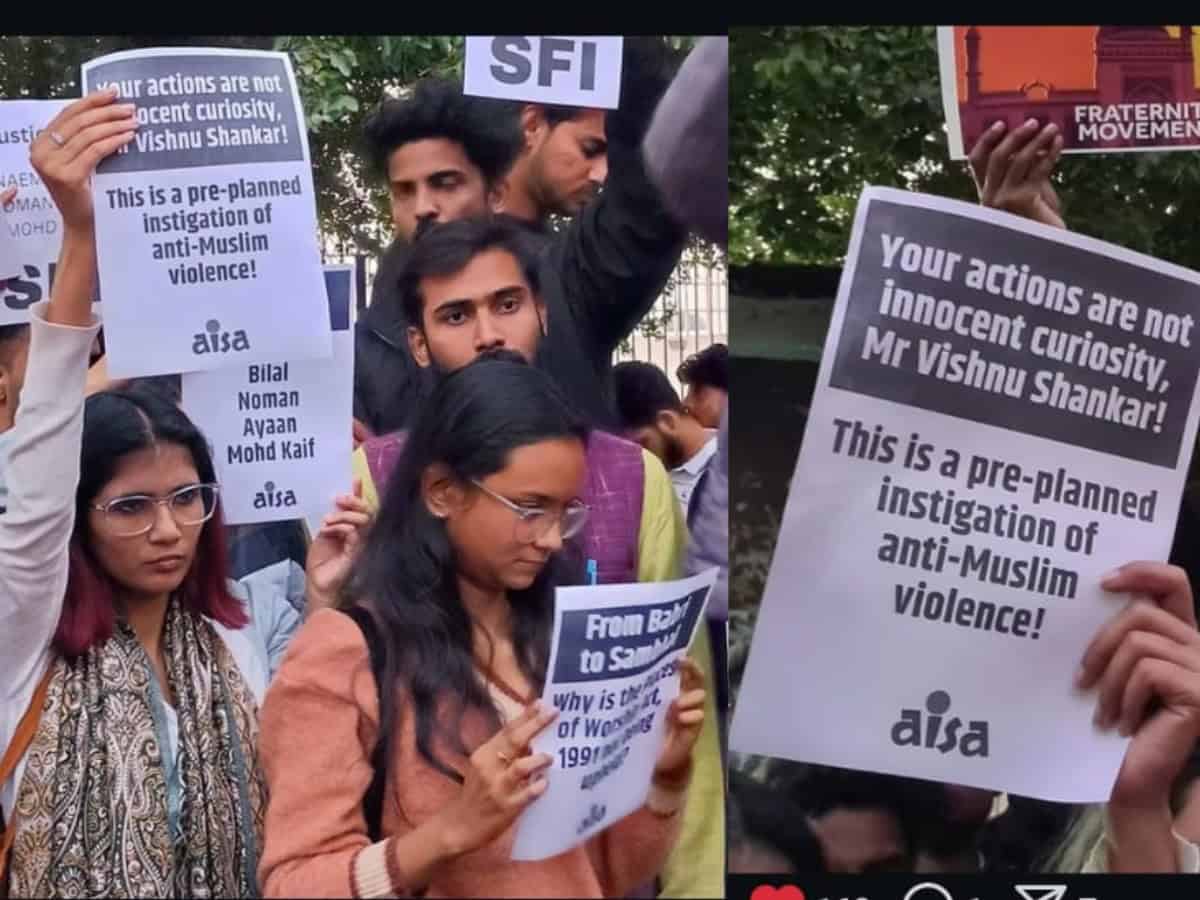
Students from Jamia Millia Islamia and Jawaharlal Nehru University (JNU) held huge protests on Wednesday and Tuesday respectively, against the recent killings of five people belonging to the Muslim community in Uttar Pradesh’s Sambhal.
The demonstrations were ignited after police forces reportedly opened fire at a Muslim crowd during protests against a court-ordered survey of the historic Shahi Jama Masjid. The firing resulted in the killing of six Muslim youngsters identified as Noman, Naeem, 28, and Mohd Bilal Ansari, 25. Another person succumbed to his injuries on Monday.
Jamia Millia Islamia protests
On Wednesday, November 27, students at the JMI campus held a large protest led by several student organisations including the Fraternity Movement and the All India Students’ Association (AISA).
The protest focused largely on the police’s aggression during the survey of the mosque, which the students and activists believed was yet another instance of Muslims being targeted in India. Students raised slogans condemning the Uttar Pradesh Police action and local administration reported orders with placards with messages such as “Babri will not be repeated”, and “#AllEyesOnIndianMosques.”
Accusation against advocate Jain
During the demonstration, the students accused advocate Vishnu Shankar Jain of inciting the violence.
Pertinently, Jain was among those who filed a petition in the district court alleging that the Jama Masjid of Sambhal is a temple, escalating tensions in the region.
Vishnu Shankar Jain, along with his father Hari Shankar Jain, currently represent similar cases such as the Krishna Janmabhoomi and Gyanvapi mosque row.
In a series of videos, the students are seen brandishing the placards and posters with messages such as “This is a pre-planned instigation of anti-Muslim violence!”, demanding justice for the victims and accountability on the part of Jain.
The protest saw a large turnout, with hundreds of male and female students participating and demanding the implementation of the Places of Worship (Special Provisions) Act of 1991. The act is designed to preserve the status of religious sites as they were on August 15, 1947, when India gained independence.
One poignant placard read, “Justice From Babri to Sambhal: Why have the Places of Worship Act 1991 not been implemented?”
The leader student, Saurabh condemned the killings and criticised UP chief minister Yogi Adityanath-led BJP government, arguing that its anti-Muslim rhetoric fuels police brutality against Muslims without fear of arrest.
JNU protest
On Tuesday, November 26, students held a massive protest in solidarity with the victims of the Sambhal violence. The students formed a human chain in Connaught Place in New Delhi, to express their dissent against what they termed as police brutality and demanded justice for those affected by the violence.
Several students from different universities participated in the protests, stressing unity among educational institutions against the perceived injustice faced by the Muslim community.
JNU’s first-ever Dalit student union president, Dhananjay also joined the protest, condemning the killings and calling for the resignation of CM Yogi. He stressed that the government’s policies have turned police authority into a “license to kill” Muslims.
Subsequently, amid the protests, AISA activists along with other students were detained by Delhi Police from UP Bhawan.



